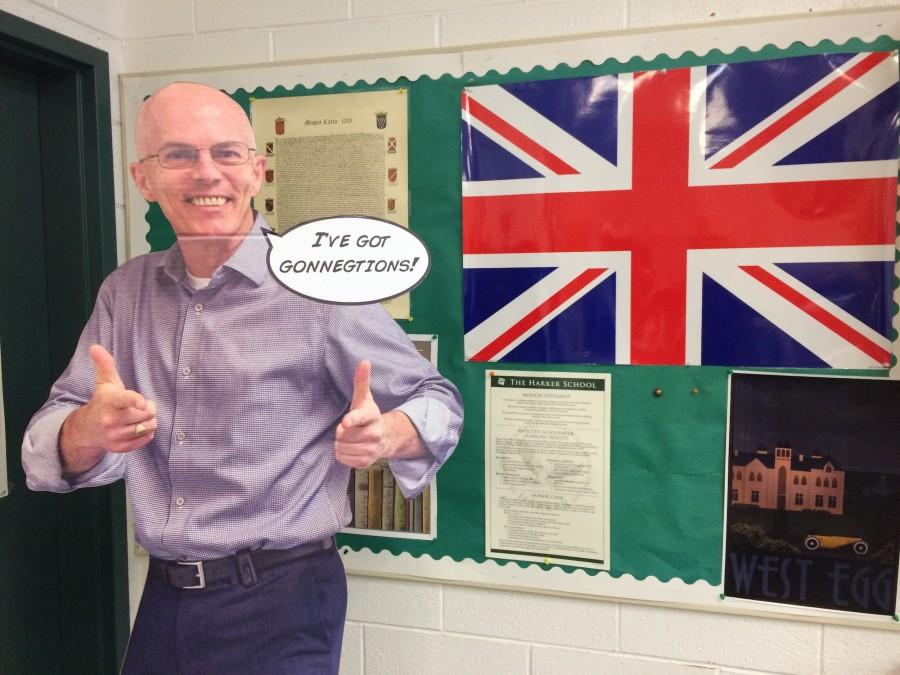#Deeptalks with John Docherty: On self-improvement, happiness, and privilege
March 9, 2016
Winged Post: What motivates you in life?
John Docherty: Lots of little things, but I think a big picture motivation might be a pursuit of excellence. Doing everything that I do to the best of my ability, the best I possibly can. Professionally, the idea of being an excellent teacher, being there for my students, for my advisees. Personally, being there for my friends and family. I suppose living by example.
WP: And on that bent, what is the core fear that drives you?
JD: I suppose a fear of failure, falling short of the mark I’ve set for myself personally and professionally. It’s more the internal targets. I can’t say I don’t care about the [outside expectations], but they’re certainly less important.
WP: How did you end up getting into teaching?
JD: I’ve always been a teacher. I knew from the end of the first semester in undergraduate school that was what I was going to do. I didn’t think I was going to be a high school teachers. Everything was kind of gearing me towards teaching in college, and I kind of fell into teaching in high school when I was in Maryland. I taught the tertiary level in Texas. I also taught at university in England, going through the graduate program in Birmingham. But when I fell into it, I haven’t looked back. It’s been a great fit. I love what I do.
WP: Why would you say it’s such a great fit?
JD: I’m making a big difference. I’m making a bigger difference in high school than I would do in college I think. It’s a simple answer.
WP: You say you’ve always been a teacher; can you elaborate on that? Did you take a mentoring role with your peers when you were younger?
JD: A little bit. I played soccer in Texas, and I remember one of the things we had to do during the summer, outside of staying in shape, was running summer camps. They were usually week-long summer camps where the varsity soccer players would serve as coaches for the younger kids. And at the end of those week-long camps, we had to give presentations on the kids. And I used to be very nervous in public speaking, and I probably still have that to a degree as part of my personality, but I found it very easy to go up there and talk to the parents of the kids I’d coached for a week, and I remember being approached by other players who weren’t teacher-oriented about how they could structure their presentations at the end of the week.
WP: Would you say you’re happy?
JD: Absolutely.
WP: As a happy person, how does one become happy? What is it about your life and your day and your place in those things that makes you say with such certainty, absolutely I am happy?
JD: You’ve got to be contented with where you are. I think being contented is different from being complacent; it’s always important to have targets. So I think I’m happy from the standpoint that I’ve got a nice balance of those two things. On the one hand, I’m not complacent. I’m always looking to improve, to hone, to sharpen. But I’m also comfortable and happy with where I am in that context. You’ve got to turn into yourself. You’ve got to know where you are, which is probably more important than knowing where you’re going. I’ve got a vague sense of where I’m going, but I absolutely know where I am.
WP: Where do you think you’re going?
JD: I’m improving. It’s kind of a generally statement. I really do feel like I’m improving. I’m not perfect. That’s where the improvement comes from.
WP: As a teacher, and as a teacher in life, and just as a person who’s happy, if you had to give one piece of advice to the student body of Harker, what would it be.
JD: I’ve got a couple of things that come to mind. Travel. I think that’s so important. Say yes to opportunities to travel. And the second thing, this is a privileged environment. Some of you may realize how fortunate you really are. Look for opportunities to give back. I think that’s so important. Those who have advantages need to give back. Engage how fortunate you really are, and reach out to those who are really less fortunate. Contribute, do something, just be aware of that.


















![“[Building nerf blasters] became this outlet of creativity for me that hasn't been matched by anything else. The process [of] making a build complete to your desire is such a painstakingly difficult process, but I've had to learn from [the skills needed from] soldering to proper painting. There's so many different options for everything, if you think about it, it exists. The best part is [that] if it doesn't exist, you can build it yourself," Ishaan Parate said.](https://harkeraquila.com/wp-content/uploads/2022/08/DSC_8149-900x604.jpg)




![“When I came into high school, I was ready to be a follower. But DECA was a game changer for me. It helped me overcome my fear of public speaking, and it's played such a major role in who I've become today. To be able to successfully lead a chapter of 150 students, an officer team and be one of the upperclassmen I once really admired is something I'm [really] proud of,” Anvitha Tummala ('21) said.](https://harkeraquila.com/wp-content/uploads/2021/07/Screen-Shot-2021-07-25-at-9.50.05-AM-900x594.png)







![“I think getting up in the morning and having a sense of purpose [is exciting]. I think without a certain amount of drive, life is kind of obsolete and mundane, and I think having that every single day is what makes each day unique and kind of makes life exciting,” Neymika Jain (12) said.](https://harkeraquila.com/wp-content/uploads/2017/06/Screen-Shot-2017-06-03-at-4.54.16-PM.png)








![“My slogan is ‘slow feet, don’t eat, and I’m hungry.’ You need to run fast to get where you are–you aren't going to get those championships if you aren't fast,” Angel Cervantes (12) said. “I want to do well in school on my tests and in track and win championships for my team. I live by that, [and] I can do that anywhere: in the classroom or on the field.”](https://harkeraquila.com/wp-content/uploads/2018/06/DSC5146-900x601.jpg)
![“[Volleyball has] taught me how to fall correctly, and another thing it taught is that you don’t have to be the best at something to be good at it. If you just hit the ball in a smart way, then it still scores points and you’re good at it. You could be a background player and still make a much bigger impact on the team than you would think,” Anya Gert (’20) said.](https://harkeraquila.com/wp-content/uploads/2020/06/AnnaGert_JinTuan_HoHPhotoEdited-600x900.jpeg)

![“I'm not nearly there yet, but [my confidence has] definitely been getting better since I was pretty shy and timid coming into Harker my freshman year. I know that there's a lot of people that are really confident in what they do, and I really admire them. Everyone's so driven and that has really pushed me to kind of try to find my own place in high school and be more confident,” Alyssa Huang (’20) said.](https://harkeraquila.com/wp-content/uploads/2020/06/AlyssaHuang_EmilyChen_HoHPhoto-900x749.jpeg)







